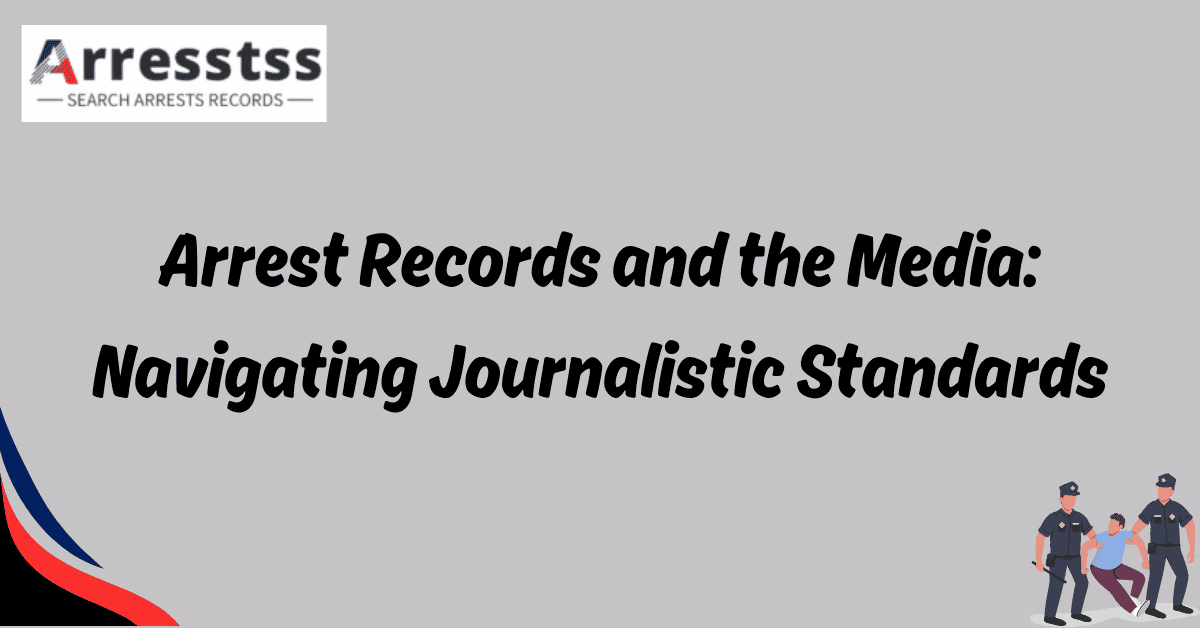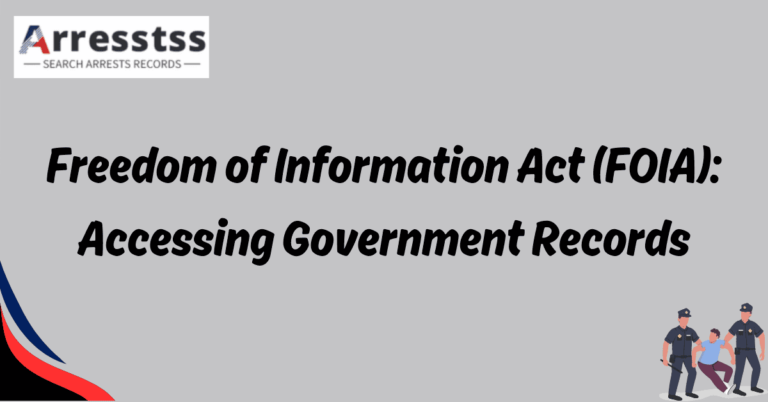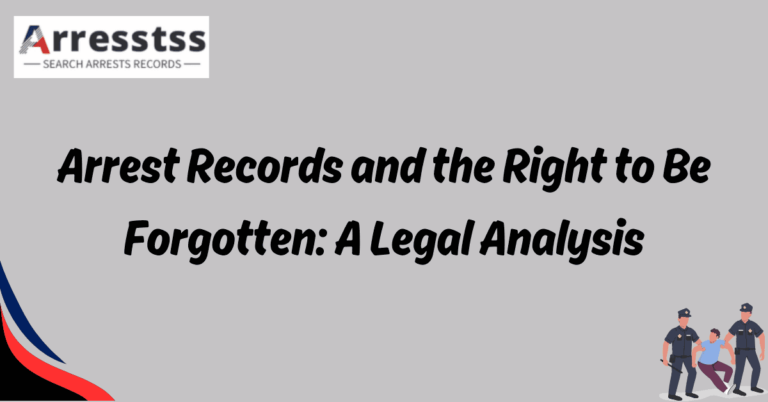Arrest Records and the Media: Navigating Journalistic Standards
Navigating the intersection of arrest records and media coverage presents a nuanced challenge for journalists striving to uphold ethical standards while delivering timely news. In an era where information spreads rapidly and public scrutiny is heightened, the responsible handling of arrest records becomes paramount. Balancing the public’s right to know with individual privacy rights requires a delicate approach, one that acknowledges the potential consequences of sensationalism and misinformation.
Role of the Media in Reporting Arrest Records
The media plays a crucial role in informing the public about various aspects of society, including crime and law enforcement. One particular area where the media often focuses is arrest records. These records provide information about individuals who have been arrested and charged with a crime, and they can have significant implications for both the individuals involved and the broader community.
Balancing the Public’s Right to Know and Ethical Standards
When it comes to reporting on arrest records, journalists face the challenge of balancing the public’s right to know with the need to uphold ethical standards. On one hand, the media has a responsibility to provide accurate and timely information to the public. This helps to promote transparency and accountability within the criminal justice system. However, journalists must also consider the potential harm that can arise from publishing certain details about an individual’s arrest.
Importance of Accuracy and Timeliness
Journalists must prioritize accuracy and timeliness when reporting on arrest records. They need to verify the information they gather and ensure its accuracy before publishing. Inaccurate or misleading information can lead to unfair stigmatization and reputational damage for individuals who may later be acquitted or have their charges dropped. Therefore, fact-checking and corroborating details from reliable sources are vital steps in responsible reporting.
Protecting Individuals’ Rights
While the public has a right to be informed about arrests, journalists must also be mindful of protecting individuals’ rights. Publishing sensitive information without proper verification or consideration can result in undue harm to the individuals involved. Balancing the public’s right to know with respecting individuals’ privacy and presumption of innocence is a delicate task that requires thoughtful consideration.
Promoting Transparency and Accountability
One of the primary reasons for reporting on arrest records is to promote transparency and accountability within the criminal justice system. By providing the public with accurate and comprehensive information about arrests, journalists contribute to a system that is held accountable for its actions. This transparency can help identify potential flaws or biases within the system, promoting discussions on necessary reforms and improvements.
Ensuring Public Safety
Another important aspect of reporting on arrest records is to ensure public safety. By sharing information about arrests, journalists help the public stay informed about potential threats to their safety. However, journalists must strike a balance between providing enough information to keep the public informed without compromising ongoing investigations or unfairly portraying individuals who have been arrested.
FAQ’s
Why does the media focus on reporting arrest records?
The media often focuses on reporting arrest records because it plays a crucial role in informing the public about crime and law enforcement. These records provide important information about individuals who have been accused of criminal activities, helping to promote transparency and accountability within the criminal justice system.
The public has a right to access information about arrests as it contributes to their understanding of potential threats to their safety. By being aware of individuals who have been arrested and charged with crimes, the public can take necessary precautions and make informed decisions.
Journalists face the challenge of balancing the public’s right to know with ethical standards when reporting on arrest records. They must carefully consider the potential consequences of publishing sensitive information without verifying its accuracy. This is to avoid unfair stigmatization and reputational damage to individuals who may later be acquitted or have their charges dropped.
Publishing certain details about an individual’s arrest without proper verification can lead to unfair stigmatization, reputational damage, and invasion of privacy. It can negatively impact the lives of individuals who may later be proven innocent, causing unnecessary harm and hindering their reintegration into society.
Journalists have an ethical responsibility to provide accurate and responsible reporting of arrest records. They should verify the information before publishing, avoid sensationalism, and consider the potential harm it may cause to individuals involved. Responsible reporting helps maintain the public’s trust in the media and ensures that the public interest is served.







